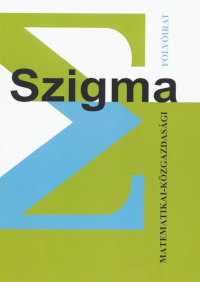Inequality of value in international trade
An input-output approach
Absztrakt
International trade may be defined –in contrast to interregional trade- as trade involving, besides goods, an exchange of national currencies, the transactions of which are collected on, and described by, national balances of payment. The exchange of currencies not only distinguishes international from national trade, but brings in an additional factor of influence, in that trading prices can be determined only at given rates of exchange of the involved currencies. The choice of a national currency as means of payment must be settled between two international trading partners, and in the aggregate it may determine where the gains from trade finally accrue. Money is not an invisible veil, but a very impressive hand of control, in international trade.


